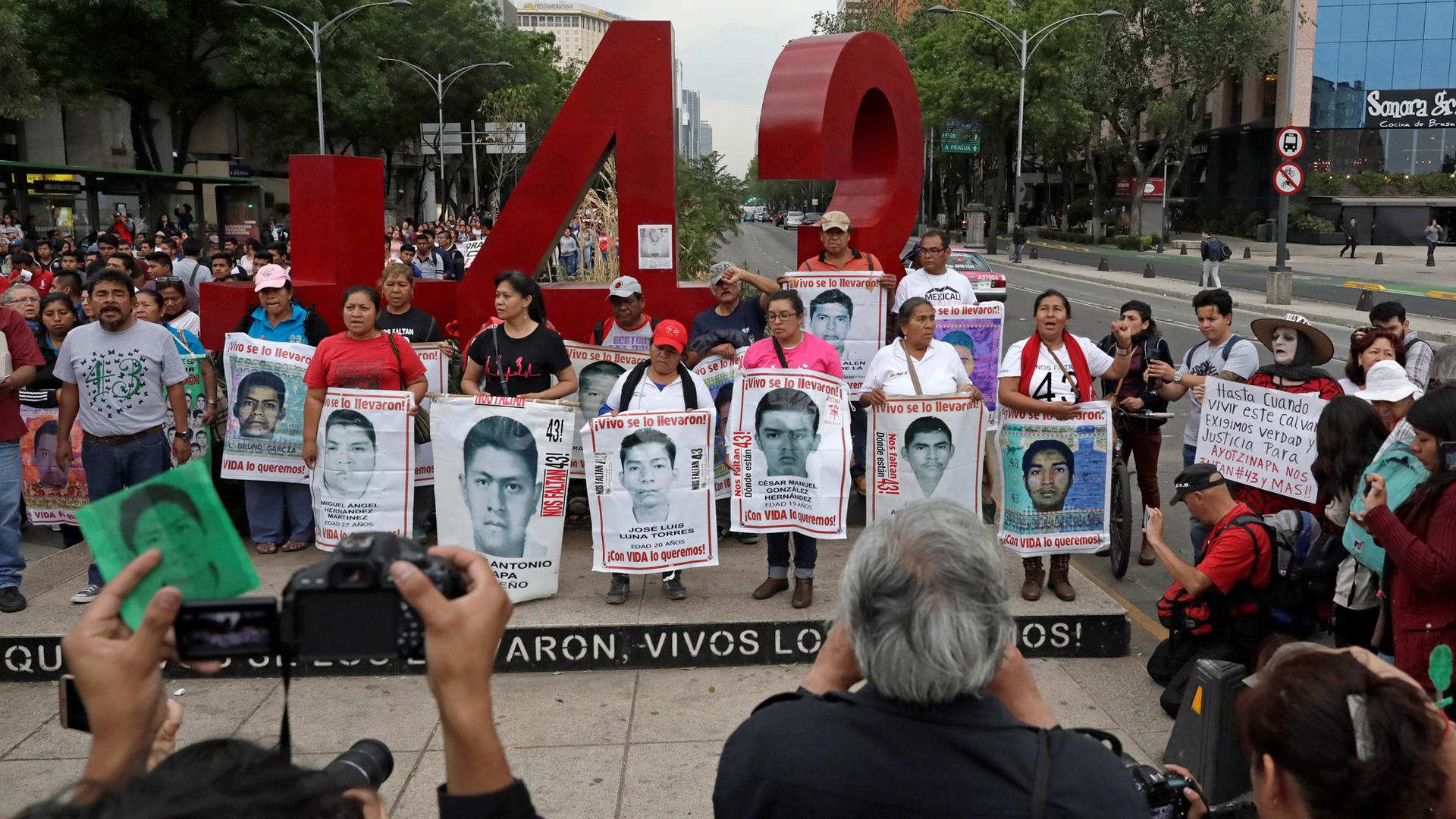Relatives pose with images of some of the 43 missing Ayotzinapa College Raul Isidro Burgos students in Mexico City.
The UN human rights office said on Thursday that Mexican authorities had tortured dozens of people in connection with an investigation into the 2014 disappearance of 43 students, and it called for a full inquiry.
Mexico said on Monday it had arrested a suspected drug gang member regarded as a key figure in the kidnapping and massacre of the 43 student teachers. Activists say the case is emblematic of widespread gang violence in the country.
The atrocity plunged President Enrique Peña Nieto's government into one of its worst crises as doubts swirled around the conduct of the investigation into the case.
"The findings of the report point to a pattern of committing, tolerating and covering up torture in the investigation of the Ayotzinapa case," Zeid Ra'ad al-Hussein, the UN High Commissioner for Human Rights, said in a report.
Mexico's mission in Geneva said the ambassador was not immediately available to comment on the report, entitled "Double injustice — human rights violations in the investigation of the Ayotzinapa case."
An initial investigation found that the students, who were on five buses, were abducted by corrupt police who handed them over to members of a drug cartel, who killed them, incinerated their bodies at a trash dump and threw the ashes into a river.
However, the official account has been widely questioned by local and international human rights experts. Only a bone fragment from one student has been found near a river.
Zeid's office, which examined information related to 63 out of 129 people detained in connected with the case, said it had documented arbitrary detention and torture based on interviews, judicial files and medical records.
It had information on the possible torture of 51 people and "solid grounds to conclude that at least 34 of these individuals were tortured," including one woman. But it stopped short of attributing blame for the murders.
“Ayotzinapa is a test case of the Mexican authorities’ willingness and ability to tackle serious human rights violations," Zeid said. "I urge the Mexican authorities to ensure that the search for truth and justice regarding Ayotzinapa continues, and also that those responsible for torture and other human rights violations committed during the investigation are held accountable.”
The UN report calls for any evidence in the Ayotzinapa case for which there are credible indications that it was obtained under torture to be excluded or invalidated.
A team of international experts said in September 2015 that Mexico’s official account of the Ayotzinapa case did not add up, citing deep flaws in the inquiry and dismissing its claims that the victims were incinerated in a garbage dump.
In their report, the experts suggested the missing bus may have been carrying a shipment of cash or drugs.
Mexican actor Gael Garcia Bernal told the UN Human Rights Council in Geneva on Wednesday that crimes against humanity had been committed in Mexico "in the name of security."
Reporting by Stephanie Nebehay; Editing by Mark Heinrich.
We want to hear your feedback so we can keep improving our website, theworld.org. Please fill out this quick survey and let us know your thoughts (your answers will be anonymous). Thanks for your time!
